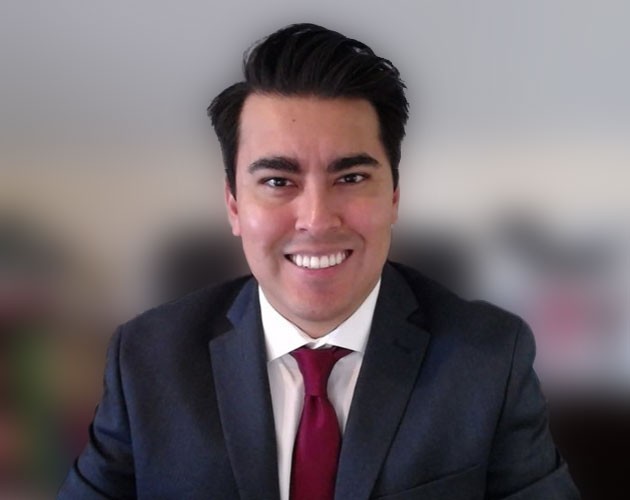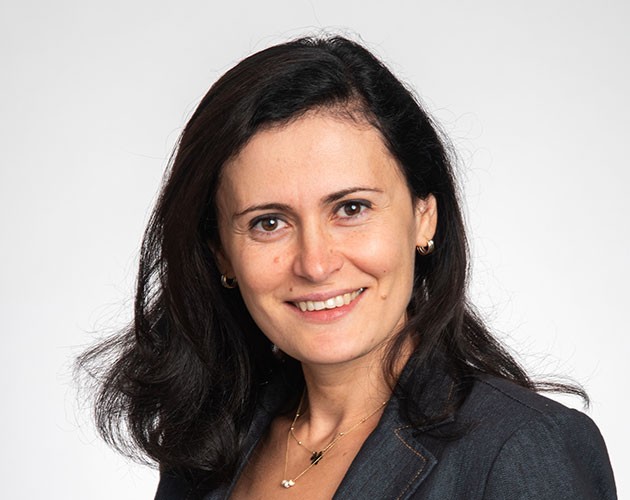An ER Nurse With Doctoral Dreams

Cassandra Smith has always had an interest in the medical field. The desire to make a difference in the health care world propelled her to receive a B.S. in Life Science from Kansas State University and a B.S. in Nursing at Washburn University.
“I initially wanted to become a doctor while in undergrad, but I struggled academically,” Cassandra recalls. “But I knew I wanted to do something in the medical field, so that is where nursing came into play.”
She began her health care career as a nurse for a few years in Tennessee at Vanderbilt University Medical Center. A conversation with a physician during this time resparked that medical school dream.
“I met a physician at work who had been an ER nurse for 10 years who then decided to go to medical school to become a doctor,” she says. “After speaking with him, it reignited a fire in me. His story motivated me to apply for medical school myself. That’s when I decided to apply for a post-bacc health program. I wanted to see if I would have a chance at getting into medical school while continuing my work as a nurse. I figured I deserved to give it a try.”
A Google search later found Cassandra perusing our Post-Baccalaureate Health Professions Program. With acceptance letter in hand, Cassandra packed up and moved to the Bay Area to start the program in January 2018. “I also had family in the area so it was nice to know I would have familiar faces when moving to a completely new state,” she recalls.
What were you looking to achieve in the program?
The number one goal was to improve my GPA and academics in general. Once I started the post-bacc program, I started working at Kaiser Permanente in the Bay Area as an Emergency Room RN. I worked 3 to 4 shifts a week.
I was able to use what I learned in class in my job throughout the program. For example, my Hematology course taught me how to look at lab results and understand what my patients were going through.
The program was able to offer research opportunities and get involved in the community in the Bay Area. I had the opportunity to become a research assistant through a posting that was given to the post-bacc students.
What courses did you take? Which stood out to you the most?
I took many of my prerequisite courses over again because it had been so long since I had taken them in my undergrad. I also took some upper-level courses such as Hematology and Immunology.
I really enjoyed my Biochemistry course. I think this was most likely because of the instructor, Daniel Benjamin. He was fantastic and taught in a way that was easy for me to understand.
The Immunology class was great because it challenged me. I was able to step out of my comfort zone and learn something different in a way I hadn’t learned before. For example, there were a lot more assignments that required short answers as compared to multiple-choice questions. Although it seems small, it actually made a huge difference for me.
What was your experience like in the classroom and with your instructors?
I really enjoyed attending office hours with the instructors. As an adult learner, I had a lot going on, so it was helpful to be able to discuss things I didn’t quite understand outside of class—even on the weekends!
I also liked that the class size was smaller as compared to my undergraduate courses. I felt more comfortable in the classroom and it made it easier to talk with my instructors.
We had a lot of group discussions in class. We were really able to learn from each other throughout the class. It allowed me to connect with a lot of other students. I even made some friends in my courses who I still keep in contact with today!
What advice would you give to a student on how to best succeed?
If you haven’t been in school for a while, I would not recommend taking a very difficult course when you start the program. That was a mistake I made because I was still getting used to being a student again after a few years of working.
Be sure to make connections with both your instructors and classmates. As adult learners, we are all very busy but it’s helpful to find a group of people from your classes to study with. It will make the class a little bit easier.
Also, it is important to maintain a good balance between school, work and personal life. This time around back in school, I was able to plan a lot better and felt more organized. I found a way to manage my studies between classes and working as an ER nurse. I made sure that every other weekend I did something fun with family or friends!
It is important to be a lot more effective in your studies, as well. You likely will have less free time than you had in your undergrad. So it was important to make sure that each time I studied, it really counted! There was no time to play around.
What does earning this certificate mean to you personally and professionally?
I proved to myself that I was able to overcome those challenges that I had in undergrad. I found that I was capable of being the type of student that I knew I was. Finding that balance and succeeding in the program was important to me.
It actually came up in my medical school interviews. I had interviewers take notice of my grades in undergrad versus in the post-bacc. They noticed how much it improved in the post-bacc while I was working as a nurse. It showed them that I was motivated and was able to juggle a full workload. I was able to focus on what was important.
The program staff in general was super-supportive. Everytime I had a question, I was able to email the instructors, the program director or any adviser. They would always get back to me and provide feedback and advice. The whole program was able to bring out the best in me these past couple of years.
You recently completed our program. What’s next?
I will be going to medical school at UC Irvine in the beginning of August 2021. I always thought I wanted to go into emergency medicine, but over the past year I am looking into other specialties and plan to be open minded. I am also very interested in obstetrics/gynecology and cardiology, so we will see where I end up. I am excited to start getting more and more experience in the field!
I also was accepted to UC Irvine’s School of Medicine LEAD-ABC Academy (Leadership Education to Advance African, Black, and Caribbean). I am looking forward to being a part of this group. I have already met with some first-years and I can see how passionate they are about helping these communities.
We will be doing various research and community projects while looking into how these communities are affected by different health disparities. LEAD-ABC has many other local partnerships that help them such as COVID vaccine drives. I can’t wait to get out into the community and do some good work.


